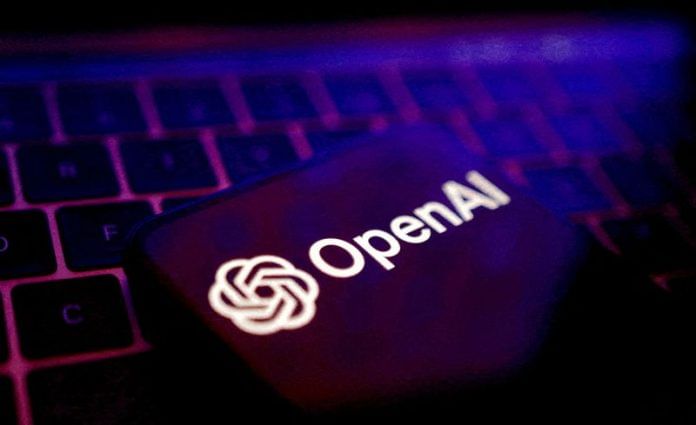(Reuters) -ChatGPT maker OpenAI said on Thursday that it is evaluating U.S. states as potential artificial intelligence data center locations for its massive Stargate venture, framing the project as a matter of urgency for the United States to stay ahead of China and other competitors in the global AI race.
“As news emerged about DeepSeek, it makes it clear this is a very real competition and the stakes could not be bigger,” said Chris Lehane, OpenAI’s chief global affairs officer. “Whoever ends up prevailing in this competition is going to really shape what the world looks like going forward, whether we have democratic AI that’s free and open, or authoritarian AI that is autocratic.”
Last month, U.S. President Donald Trump announced Stargate, a private sector investment of up to $500 billion for AI infrastructure, funded by SoftBank, OpenAI and Oracle. These companies, along with other equity backers of Stargate, have committed $100 billion for immediate deployment, with the remaining investment expected to occur over the next four years.
Around 16 states have indicated interest in building data centers for Stargate, with Texas as the “flagship” data center site, Lehane said.
The initial data center for the project is already under construction in Abilene, Texas.
But less than a week after Trump’s Stargate announcement, a low-cost Chinese AI model called DeepSeek emerged, raising questions about the long-held belief that advancing AI requires massive, specialized data centers like those being built by Stargate.
DeepSeek’s researchers claimed one of its models was trained on less sophisticated chips at a fraction of the cost of American AI models, potentially disrupting the assumption that progress in AI necessitates vast computing resources.
In response, global investors dumped tech stocks, particularly Nvidia, the leading maker of AI computer chips, evaporating $593 billion of Nvidia’s market value, a record one-day loss for any company on Wall Street.
(Reporting by Juby Babu in Mexico City, Akash Sriram in Bengaluru and Anna Tong in San Francisco; Editing by Mohammed Safi Shamsi, Sayantani Ghosh and Matthew Lewis)
Disclaimer: This report is auto generated from the Reuters news service. ThePrint holds no responsibility for its content.





